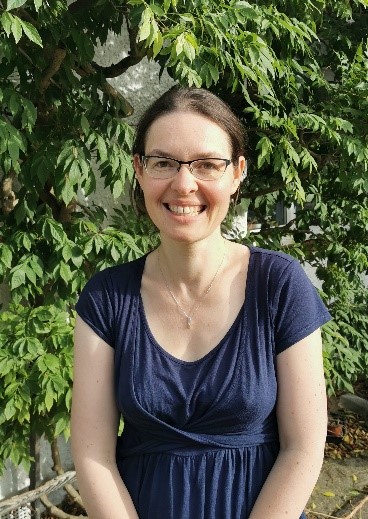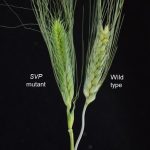Britta Kümpers: Plant Physiology First Author

 Britta Kümpers, first author of “Dual expression anatomy lines (DEAL) allow simultaneous visualization of gene expression and anatomy”
Britta Kümpers, first author of “Dual expression anatomy lines (DEAL) allow simultaneous visualization of gene expression and anatomy”
Current Position: Postdoctoral Research Fellow at the University of Exeter
Education:
PhD in Plant Sciences at the University of Cambridge,
MSc in Biodiversity and Taxonomy of Plants at the Royal Botanic Garden Edinburgh/ University of Edinburgh,
BSc in Biology with Honours in Plant Sciences at the University of Edinburgh.
Non-scientific Interests: gardening, hiking, cooking & baking, knitting, botanising, exploring the countryside with my family.
Brief bio:
My interest in plants and their development stems from gardening and forests walks with my mum when I was younger. After my BSc in Biology with a focus on Plant Sciences, I continued my studies in Edinburgh with an MSc in Plant Biodiversity and Taxonomy at the Royal Botanic Garden Edinburgh. I was fascinated by the huge diversity of plants and enjoyed being able to see the bigger picture of developmental trends in certain groups of plants by studying plant taxonomy and understanding which plants are closely related.
I moved to Cambridge (UK) for my PhD in Julian Hibberd’s lab to study comparative leaf development in different Flaveria species using C3 or C4 photosynthesis. I really enjoyed combining the detailed analysis of plant anatomy with RNA sequencing to start to understand the drivers for differences in leaf development.
After my PhD I moved to Nottingham for my first postdoctoral position with Anthony Bishopp. In Nottingham I worked on the development of the root vasculature in Arabidopsis. I started working on producing genetic markers to follow root development which was the start of this paper. I finished the first DEAL destination vector just before going on maternity leaf with my first child and was excited to see that it worked well when I returned to work. Now four years later we finished the final revisions of this paper while I am on maternity leave with my second child. I am very happy to have this paper published and hope it will be useful for other researchers working on plant anatomy and development.
I am now based at the University of Exeter, working on comparative duckweed development. Duckweeds are very small plants floating on fresh water and have a very interesting anatomy and life cycle. There are species with one or more roots but also rootless species and they mostly reproduce clonally but can also flower.



